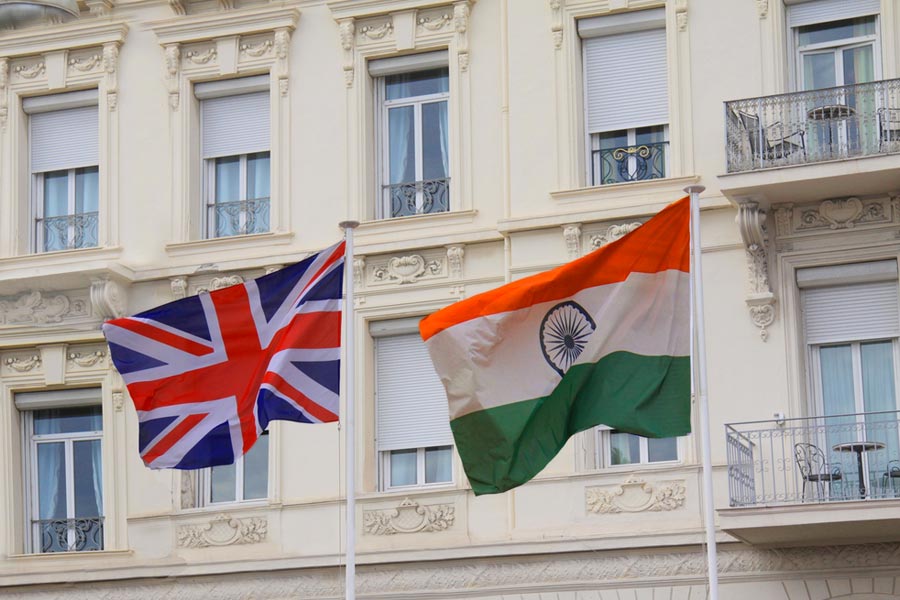A war of words has erupted as India and the UK struggle to strike a free trade deal with both sides unwilling to bend on key issues.
“They want a paper deal to wave and say, ‘Look what we have achieved,’ ” a senior British official told The Times, London. He added: “But we are not prepared to sign up to something that is basically worthless.” The official told the newspaper that with elections approaching in both India and the UK, the Indian side is attempting to jack up the pressure and conclude a deal before talks have to be suspended. India will go to the polls in April-May while the UK is expected to hold elections in the autumn.
Another UK government official told The Times there had been "no meaningful progress" even though talks have been going on without a break since the new year.
The sticking points that the two sides are wrangling over could be tough to resolve in the short-term. India is trying to wrest a deal from Britain that Indian workers who go for specific short-stay projects (like IT workers) should not have to make social security payments. UK experts estimate that if Westminster accedes to that demand, it could cost the treasury POUND STERLING 200 million. India has such social security pacts with other countries including France while Britain has deals on this with Canada, France and Australia.
Also, India is pushing strongly that students from this country should be allowed to stay on in the UK for two years after completing their courses. For British Prime Minister Rishi Sunak, this could be a tough ask as he is under heavy pressure from right-wing Conservatives to slash immigration. Sunak also faces a general election this year. About 50,000 Indians receive skilled worker visas annually but they are not eligible for social security or UK pensions.
Britain also has big demands that may be difficult to give the green signal to. Firstly, it has a longstanding demand for a reduction of duties on Scotch whisky from the current 150 per cent. India is now the largest consumer of Scotch by volume so this is a key demand for the UK. India imported 219 million bottles of Scotch in 2022, ousting the French who imported 205 million bottles.
Indian manufacturers have consistently opposed the lowering of duties but there are indications now that they are not totally averse to a deal. However, India is sticking to duties of 100 per cent and the UK wants that down to 75 per cent immediately and reduced to 30 per cent later.
Britain also wants India to reduce tariffs on food and automobiles. There are indications that they could be close to agreements on these subjects.
Besides this, Britain also wants major access for services like accountancy, architecture and technology. There is, inevitably, resistance here to such opening up. Indian lawyers have filed a suit against foreign lawyers being allowed to handle cases here.
India appears unlikely to lower duties unless the British allow easier access for workers and concessions on student stay.
One UK official remarked that India, “does not want to open up its economy too much.” But similarly, the UK is reluctant to ease rules on anything relating to immigration.











